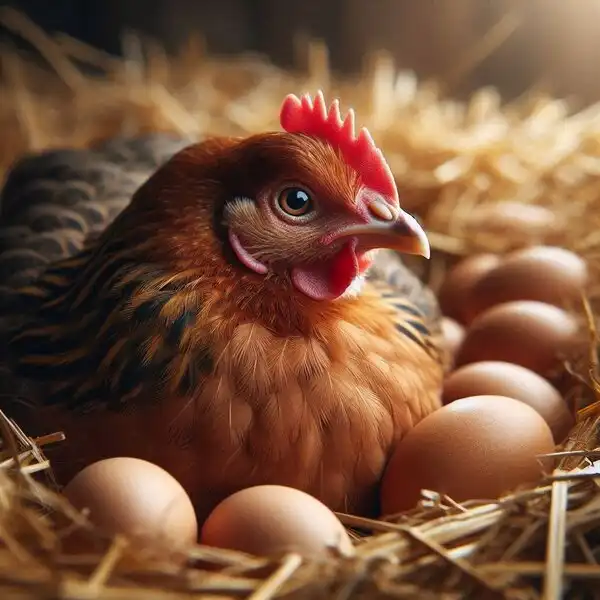Understanding Broody Hen Behavior
Broodiness in hens is a natural instinct that plays a crucial role in the reproduction cycle of chickens. Understanding this behavior is essential for poultry keepers to effectively manage their flocks.
Exploring Broodiness in Hens
Broodiness is the tendency of a hen to sit on her eggs in an attempt to hatch them. This behavior typically arises from hormonal changes triggered by the desire to reproduce. When a hen becomes broody, she will exhibit distinct behaviors such as spending extended periods of time in the nesting box, puffing up her feathers, and becoming more defensive of her nest.
Impact of Broodiness on Egg Production
While broodiness is a natural behavior, it can have implications for egg production. Broody hens will cease laying eggs during this period as their focus shifts towards incubating and caring for their clutch of eggs. This reduction in egg production can affect the overall output of a flock, particularly for those relying on consistent egg yields.

Factors Affecting Broodiness
Several factors can influence a hen's likelihood of becoming broody. These include breed predisposition, age, environmental conditions, and the presence of fertilized eggs in the nesting box. Certain breeds, such as Silkie and Orpington, are known for their broody tendencies, while others may rarely exhibit this behavior.
Identifying Signs and Duration of Broodiness
Recognizing the signs of broodiness is essential for poultry keepers to effectively manage their hens. Common indicators include a hen's refusal to leave the nesting box, aggression towards other flock members, and a puffed-up appearance. Broodiness typically lasts for around three weeks, corresponding to the incubation period of eggs.
Encouraging or Redirecting Broody Behavior
Whether to encourage or discourage broodiness depends on the goals of the poultry keeper. For those seeking to hatch chicks naturally, fostering broodiness in hens can be beneficial. However, if maximizing egg production is the priority, measures may be taken to redirect broody behavior, such as removing eggs from the nesting box promptly.
TIP: Start with simple projects and gradually move on to more complex ones as you gain confidence.
Broody Hen Care and Handling
Managing aggression in broody hens is crucial for maintaining a harmonious flock. When hens enter a broody state, they can become fiercely protective of their nest and may exhibit aggressive behavior towards other flock members, including pecking and chasing. To address aggression, it's essential to provide adequate space within the coop, ensuring each hen has enough room to establish her territory without encroaching on others.
Evaluating Egg Safety from Broody Hens
Ensuring egg safety from broody hens is paramount to prevent the risk of consuming contaminated eggs. Broody hens may inadvertently soil eggs with feces or cause them to crack during incubation, potentially exposing them to harmful bacteria. It's essential to collect eggs promptly from nesting boxes to minimize the risk of contamination. Additionally, conducting regular inspections of collected eggs for signs of damage or spoilage can help safeguard egg quality.
Effective Egg Collection Methods
Implementing effective egg collection methods is essential for managing broody hens and maintaining egg quality. Designating specific times throughout the day to collect eggs can help prevent broody hens from accumulating a large clutch in the nesting box, reducing the likelihood of broodiness. Additionally, providing alternative nesting options, such as secluded areas or additional nesting boxes, can help distribute broody behavior and minimize disruption to egg production.
Preservation Techniques for Excess Eggs
Preservation techniques for excess eggs are valuable for extending the shelf life of eggs and ensuring a steady supply for consumption. Freezing excess eggs is a convenient method for preserving their freshness, allowing them to be stored for several months without compromising quality. Alternatively, pickling eggs in a vinegar-based solution or water glassing, which involves submerging eggs in a solution of water and hydrated lime, can also prolong their shelf life and provide a flavorful addition to meals.
Optimizing Broodiness for Your Flock
Strategies for broody hen management are essential for maximizing the benefits of broodiness while minimizing disruptions to egg production. One effective strategy is to provide broody hens with dedicated nesting areas equipped with comfortable bedding and privacy. This helps satisfy their natural instincts while preventing them from monopolizing communal nesting boxes.
Nutrition and Health Considerations for Broody Hens
Ensuring optimal nutrition and health for broody hens is crucial for supporting their well-being during extended periods of nesting. Broody hens may require additional nutrients to sustain their energy levels and promote egg development. Providing a balanced diet rich in protein, vitamins, and minerals, supplemented with calcium sources like crushed oyster shells, can help maintain their health and vitality.
Ensuring Flock Welfare During Broodiness
Ensuring the welfare of the entire flock during broodiness involves monitoring broody hens for signs of distress or neglect. It's essential to observe broody hens regularly to assess their condition and intervene if necessary. Providing ample space, adequate ventilation, and access to fresh water and food ensures the well-being of broody hens and their flock mates.
Utilizing Broodiness for Flock Expansion
Broodiness presents an opportunity for flock expansion and sustainability. By allowing broody hens to hatch and raise chicks naturally, poultry keepers can replenish their flock and maintain genetic diversity. Selecting broody breeds known for their maternal instincts and providing them with a conducive environment for rearing chicks can help ensure successful hatchings and healthy offspring.
Conclusion and Next Steps
Broody hen management plays a pivotal role in maintaining a healthy and productive flock. By understanding the significance of broodiness and implementing effective management practices, poultry keepers can optimize egg production and promote the well-being of their hens.
Importance of Broody Hen Management
Managing broody hens is essential for ensuring the overall health and vitality of the flock. Broodiness can disrupt egg production cycles and lead to decreased productivity if left unchecked. By actively monitoring broody behavior and implementing appropriate interventions, such as providing alternative nesting options or separating broody hens from the main flock, poultry keepers can mitigate disruptions and maintain consistent egg yields.
Implementing Effective Broody Hen Care Practices
Implementing effective broody hen care practices involves addressing the specific needs of broody hens during their nesting period. Providing broody hens with adequate nesting materials, such as straw or shavings, and ensuring access to fresh water and nutritious feed supports their well-being and promotes successful hatchings. Additionally, regularly inspecting broody hens for signs of illness or discomfort allows for prompt intervention and ensures their continued health.
Join the Abundant Pantry Egg Preservation Course
For poultry keepers looking to expand their knowledge and skills in egg preservation, joining the Abundant Pantry Egg Preservation Course is a valuable opportunity. This comprehensive course offers practical guidance on handling, storing, and preserving eggs using various techniques, including freezing, pickling, and water glassing. By enrolling in this course, poultry keepers can learn how to maximize the shelf life of their eggs and minimize waste.
Subscribe for Homesteading Tips
Stay informed and inspired on your homesteading journey by subscribing to receive regular updates and tips from Homesteading Family. Whether you're a novice homesteader or seasoned pro, our content covers a wide range of topics, including gardening, preserving, herbal medicine, traditional cooking, and more. Subscribe today to access valuable resources and join a community of like-minded individuals passionate about self-sufficiency and sustainable living.

 Emma
Emma

